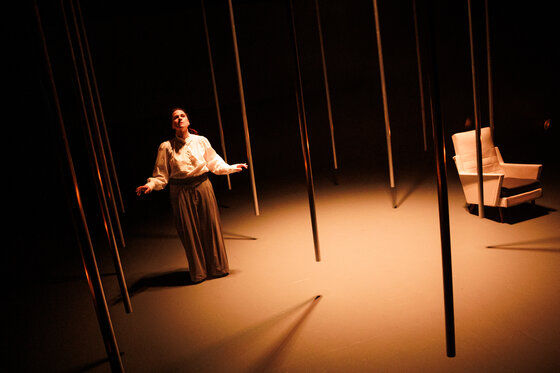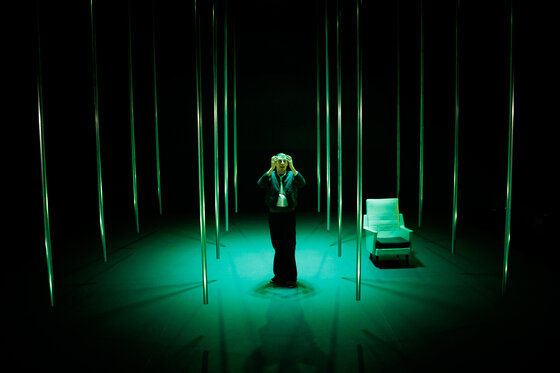The Machine Stops, at Theatre Works - 65 minutes
- Alex First
- Aug 27, 2025
- 2 min read
Our worst fears about artificial intelligence are realised in The Machine Stops, which is an adaptation of the 1909 novella by former English author E.M. Forster.
It shares a common conceit with Aldous Huxley’s Brave New World (1932) and George Orwell’s 1984 (1949).
“The Machine” has sent humans underground and subjugated freedom of thought.
Technology is the controlling force and mankind has become subservient to it.

Photos by Hannah Jennings
A son, Kuno (Patrick Livesey), living a subterranean existence in the northern hemisphere, reaches out to his mother, Vashti (Mary Helen Sassman).
Her every movement and thought in the southern hemisphere are controlled by The Machine.
That includes when to speak with friends, when to listen to music and when to sleep.
The son – who is rebellious and refuses to toe the line – asks his mother to visit him, but she is immediately fearful.

To step outside requires a respirator and her journey is a dangerous one.
Nevertheless, she makes it to hear her son’s story.
He tells her The Machine has paralysed their bodies and wills, and though she is dismissive of his utterances, a reckoning is coming.
Movement, sound and light play a huge part in proceedings in Briony Dunn’s adaptation of the chilling work.

The Machine’s droning, mechanical hum is interspersed with disconcertingly loud sounds, the work of Darrin Verhagen.
Sharp lighting cues by Niklas Pajanti punctuate the everyday existence of Vashti, who is regularly scanned.
Sixteen evenly spaced metallic poles and a single armchair on a square stage constitute the minimalist but evocative set by Pajanti and Dunn.
It is suggestive of a prescriptive life that fits neatly within a box.

Photos by Hannah Jennings
Equally noteworthy are the strength of the performances.
Sassman has an eerie stillness about her throughout, with movement kept to a minimum.
There is a desperation about Livesey’s representation, as Kuno pushes Vashti to understand there is another, more enlivened, way.
While Forster’s incisive writing pre-empted the emergence and omnipotence of the internet, Dunn scarily showcases the power and persuasion of AI.

Be afraid, be very afraid.
The Machine Stops is a fine example of creative independent theatre, as it transports us to a dystopian future.
It is on at Theatre Works until 30th August, 2025.




Comments